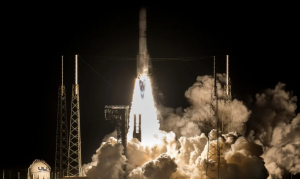American space experts, government officials, and lawmakers emphasized the urgency for the United States and its allies to win the 21st-century space race and establish a rules-based international order before China establishes its own norms. Frank Lucas, chair of the House Science, Space, and Technology Committee, highlighted China’s active efforts to form international partnerships for a lunar research station and its goal to land astronauts on the moon by 2030. Lucas emphasized that the country landing on the moon next would shape the precedent for future lunar activities, determining whether they are conducted transparently or in a more restricted manner.

Speaking at a congressional hearing on NASA’s Artemis program, which aims to send four astronauts to the moon by 2026, Lucas raised concerns about China’s ambitions and stressed the need for the U.S. and its allies to take the lead. He noted that the Chinese Communist Party’s lunar aspirations could impact the openness and transparency of future lunar endeavors. The discussion comes in the context of NASA’s Artemis program, which recently faced delays over safety concerns, with the attempt to land a robot on the lunar surface failing due to technical issues.
Lucas highlighted the significance of the lunar surface as the site for setting precedents, considering the potential for valuable resources such as ancient ice and critical minerals at the moon’s south pole. The timeline for Artemis missions was also discussed, with Artemis 2, originally planned for this year, now scheduled for 2025, following Artemis 1’s uncrewed lunar orbit in 2022. Artemis 3, set to land humans on the moon’s south pole, faces delays and is now targeted for a year later, 2026. In contrast, China aims to send an uncrewed lander to the moon’s south pole by 2027.
Catherine Koerner, a senior NASA official, highlighted challenges in developing life-support systems for the Artemis 2 spacecraft. The discussion underscores the competition for lunar exploration and the need for the U.S. and its allies to secure leadership in shaping the norms and conduct of future space activities.

